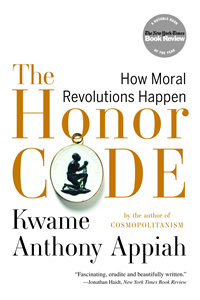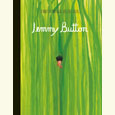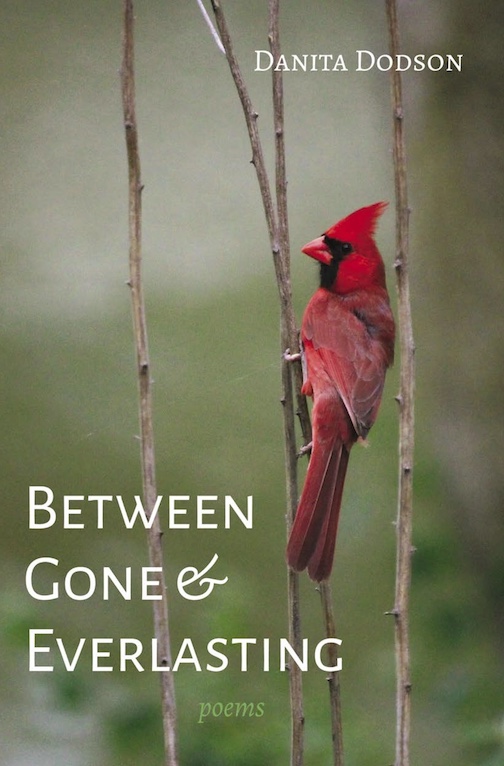Rehabilitating Honor
Philosopher Kwame Anthony Appiah sees honor as the key to moral progress
For many twenty-first-century Americans, the notion of honor rings hollow. Media critic and academic James Bowman, for instance, has claimed that we live in a post-honor society and that old notions of honor have themselves become shameful. The very word “honor” conjures up images of the joust or a gentle slap with a soft leather glove: haughty behaviors perhaps best left to history books. According to philosopher Kwame Anthony Appiah, however, honor is the very thing we need more of. In The Honor Code: How Moral Revolutions Happen, Appiah maintains that, rather than being obsolete, honor can be a fundamental, powerful engine for social change.
Appiah makes a distinction between the demands of honor and those of morality. The two, he says, are independent systems that may or may not align: one can behave honorably in the service of an immoral cause. “What we need,” says Appiah, on the other hand, “are codes of honor that are compatible with morality.”
Appiah cites three historical examples to prove his point: dueling in eighteenth-century Britain, footbinding in nineteenth-century China, and the slave trade in sixteenth- and seventeenth-century Europe. All three were once connected to the appreciation of honor (duels were fought in honor’s defense, for instance) but swiftly became incidences of shame when subjected to the scrutiny of outsiders and disapproving insiders. In essence, private notions of morality gained enough traction to overrule longstanding (if immoral) cultural tradition once the need for honor went public. “Honor,” says Appiah, “is no decaying vestige of a premodern order; it is, for us, what it has always been, an engine, fueled by the dialogue between our self-conceptions and the regard for others, that can drive us to take seriously our responsibilities in the world we share.”
Appiah concludes by citing a current example: honor killings in Pakistan, a practice which continues despite growing outrage both inside and outside of the country. In traditional Pashtun culture, when a woman has sex outside of marriage, the dishonor attaches to her family. The penalty for inviting such dishonor is death––for the woman, of course. Appeals to morality, religion, and reason aren’t enough to eradicate honor killings, says Appiah, who maintains that the practice will cease only when it is understood to be dishonorable by those who currently participate in it.
 Appiah is the president of the PEN American Center. He has taught philosophy at many colleges and universities, including the University of Ghana, Drexel, Cornell, Yale, and Harvard. He is currently a philosophy professor at Princeton, with a cross-appointment at the University Center for Human Values. His books include Cosmopolitanism and the novel Avenging Angel. In 2010, The Honor Code was one of The New York Times Book Review’s 100 Best Books of the Year, and has just been released in paperback. Appiah answered questions from Chapter 16 via email.
Appiah is the president of the PEN American Center. He has taught philosophy at many colleges and universities, including the University of Ghana, Drexel, Cornell, Yale, and Harvard. He is currently a philosophy professor at Princeton, with a cross-appointment at the University Center for Human Values. His books include Cosmopolitanism and the novel Avenging Angel. In 2010, The Honor Code was one of The New York Times Book Review’s 100 Best Books of the Year, and has just been released in paperback. Appiah answered questions from Chapter 16 via email.
Chapter 16: Though your book is called The Honor Code, it seems to me as if shame, honor’s negative, is more closely related to the engine for moral change. Were you tempted to include the word “shame” in the title?
Appiah: You need a sense of honor to feel shame, of course: which is why we call people without a sense of honor “shameless.” But honor is about a concern not just to be respected but to deserve respect. And so, while the feeling of shame––the sense that you have lost your entitlement to respect––does motivate people in the moral revolutions I discuss, that’s because they have a concern to preserve their honor. So I think that honor is, in some sense, conceptually primary.
And one reason for keeping shame out of the title is that I didn’t want people to think that shaming people was at the heart of what I am talking about. Actively trying to shame people is a risky business: it can lead to a backlash. What works better is a respectful dialogue in which people come to see that they can preserve their honor through change. Shouting “shame on you” at people isn’t necessarily very productive!
Chapter 16: You argue that an honor world should feel collective shame when, collectively or individually, its members behave immorally. When so many people operate from a place of damage or perceived lack––the recent rioters in Britain, for example––is it also appropriate to feel compassion for those who behave dishonorably?
Appiah: I don’t really understand what happened in the British riots––nor do most people, I suspect, but they don’t admit it––so I don’t know how we should feel about the rioters. But the general point is certainly right: people who are disrespected can act dishonorably because of it; and helping them recover their self-respect, especially when it is rooted in the unwarranted contempt of others, can be helpful.
Chapter 16: The moral revolutions of which you speak––those opposing the duel, Chinese footbinding, and British slavery––were, you say, “part of a longer, larger revolution in moral sentiments that has aimed to reduce the role of class and race and gender in shaping hierarchy.” Is it accurate to assume that, generally speaking, morality progresses? Are we currently a more honorable world than we were during the time of the duel, for example?
Appiah: I do think that, as Dr. King used to say, “The arc of the moral universe is long, but it bends towards justice.” But that doesn’t mean things can’t go backward morally for a while. As for whether we are more or less honorable today, that is, for me, an importantly different question, because, in my view, honor and morality are distinct systems, and we could move one forward while the other went backward.
 There’s an ambiguity, in any case, in the question: do we mean by “more honorable” more in conformity with standards of honor (these would have to be our standards), or do we mean more preoccupied with questions of honor. I think that, since honor standards have changed, the answer to your last question, taken the first way, is bound to be: Yes. But the answer to the question, taken the second way, I think is probably, No. We’re generally less preoccupied with whether we deserve the respect of a wide world of strangers, I suspect, than many eighteenth-century Englishmen and women were, in part because we are less dependent for material well-being on the respect of strangers.
There’s an ambiguity, in any case, in the question: do we mean by “more honorable” more in conformity with standards of honor (these would have to be our standards), or do we mean more preoccupied with questions of honor. I think that, since honor standards have changed, the answer to your last question, taken the first way, is bound to be: Yes. But the answer to the question, taken the second way, I think is probably, No. We’re generally less preoccupied with whether we deserve the respect of a wide world of strangers, I suspect, than many eighteenth-century Englishmen and women were, in part because we are less dependent for material well-being on the respect of strangers.
Chapter 16: You quote de Tocqueville to the effect that honor in “democratic centuries” does not resemble honor in “aristocratic times.” Is democracy more hospitable to honor than other forms of government?
Appiah: Honor has to work in a different way in democracies. Competition for honor among citizens is not at the heart of democracies. What is, is a concern for the nation’s honor, and a preoccupation with mutual respect. Insofar as there is competition, it is with other societies!
Chapter 16: In the matter of eliminating honor murders in Pakistan, you prescribe “shame and carefully calibrated ridicule.” Couldn’t an honorable Pakistani just as easily point the finger at us, labeling abortion or our criminal-justice system “dishonorable”? Can we really claim high ground here?
Appiah: Absolutely, it goes both ways. But this case illustrates a difficulty in the moral dialogue between Pakistan and the United States, which is that many Americans probably don’t care much what [the Pakistanis] think because they don’t have respect for them; and many [Pakistanis] don’t respond to what we think because people don’t take much notice of contempt or shaming that comes from people who don’t have a background level of respect for them. The reason we Americans have lost entitlement to respect because of these things is because they are wrong. Since I don’t think standard abortions are wrong, on the other hand, I am not ashamed that we permit them.
Chapter 16: Of art that has stood the test of time, so much seems to be rooted in the angst and dishonorable behavior of the artist––one thinks of Van Gogh, Rimbaud, and Charlie Parker. Is there a place for dishonor in the arts?
Appiah: It seems to me that the romantic conception of the artist sees him (and it usually is him, not her) as driven by concerns that lead him to ignore moral demands, not the demands of honor. (Characteristically people like the Dadaists flouted bourgeois moral standards, while having a well-developed sense of their own honor.) Now it’s true that immorality of many kinds means you lose your entitlement to our respect. So immorality is often dishonorable. But if you earn respect from your artistic achievements, you might think this a reasonable trade-off. I actually think that the romantic notion that great art requires an indifference to morality is wildly mistaken, by the way, so I’d be inclined to contest this picture. Still, as Bernard Williams pointed out apropos of Gaugin, sometimes the artist has the moral luck that his immortality pays off: it permits him to make genuinely great art, and that makes his life, taken as a whole, one of significance, even though he has behaved badly, for example, towards his family.
Chapter 16: You argue that armies are, at this point in history, a necessary evil. Further, you advocate military honor as an efficient way to avoid such excesses as occurred at Abu Ghraib. Is it possible for a soldier to behave honorably when his or her overarching orders––be they colonial or vengeful or xenophobic––are dishonorable? I’m thinking here, of course, of the wars in Afghanistan and Iraq, which increasingly seem motivated by domestic politics, rather than by a concern for global stability or humanitarianism.
Appiah: At a certain point, I think a concern for the honor of the United States—or the Marines or your own regiment or platoon—will require you to challenge illegal or immoral orders. This is one of the connections between morality and honor: sometimes to do, or even just to condone, what is immoral is dishonorable. That, I think, is a significant part of what motivated some of the aristocrats in the July 20, 1944, plot to assassinate Hitler: people like Adam von Trott zu Solz, Claus Schenk, and Graf von Stauffenberg.
The real problem with our wars in Iraq and Afghanistan is that they are wrong, not that they are dishonorable. But there is honorable behavior—and moral behavior—among the troops in armies whose cause is totally unjust. Not every German soldier in WWII behaved dishonorably, but the cause in which they were fighting was totally unjust, and the war aims of Nazi Germany were profoundly immoral. It is a familiar idea in our own country that there were honorable soldiers on the Southern side in the Civil War, who thought their cause was not just but felt they had, nevertheless, to defend their own people.
Chapter 16: Is it realistic to expect a culture obsessed with dishonorable behavior––reality television, celebrity meltdowns, cold-blooded murderers, cold-blooded businessmen, and the like––to embrace honor as an engine of social change?
Appiah: I don’t think we should confuse an interest in gossip about people with a failure to grasp what is wrong about their behavior: what is immoral, stupid, dishonorable, childish. There is indeed a certain fascination in watching such performances, though that isn’t new. All I can say about what is realistic is that I have met a good number of people of all ages since I published this book who are trying hard to live honorable lives and feel the call to honor. Of course the world is full of shameless people as well. Again, that isn’t new. What I would like to insist is that there are more honorable people still than people may suppose, and that with a bit of a movement, there might be more.
Kwame Anthony Appiah will discuss his work at Rhodes College in Memphis on September 21 at 7:30 p.m. The event is free and open to the public. Click here for details.





